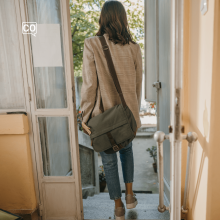Irse (to leave) - Subjuntivo futuro perfecto, subjuntivo (Future perfect subjunctive, subjunctive) - Spanish

Irse - Conjugation of to leave in Spanish: Conjugation table, examples and exercises in the future perfect subjunctive, subjunctive tense (Subjuntivo futuro perfecto, subjuntivo).
Subjuntivo futuro perfecto, subjuntivo (Future perfect subjunctive, subjunctive)
All conjugations and tenses: Irse (to leave) - conjugation and tenses - (Spanish)
Syllabus: Spanish lesson - Transporte (Transportation)
Conjugation of to leave in Subjuntivo futuro perfecto
- yo me hubiere ido I would have left
- tú te hubieres ido you will have left
- él/ella se hubiere ido he/she will have left
- nosotros/nosotras nos hubiéremos ido we would have left
- vosotros/vosotras os hubiereis ido You will have left
- ellos/ellas se hubieren ido they will have left
Example phrases
- Después de que me hubiere ido, tocaré el instrumento. After I will have left, I will play the instrument.
- Después de que te hubieres ido, sacarás la basura. After you have left, you will take out the rubbish.
- Después de que se hubiere ido, pintará el cuadro. After he/she will have left, he will paint the picture.
- Después de que nos hubiéremos ido, leeremos el libro. After we have left, we will read the book.
- Después de que os hubiereis ido, escucharéis la música. After you all will have left, you all will listen to the music.
- Después de que se hubieren ido, nadarán en la piscina. After they have left, they will swim in the pool.
Exercise: Conjugate the verbs - irse (to leave)
Instruction: Choose the correct word, read the sentence out loud and translate.
Show answers Show translationIrse (Subjuntivo futuro perfecto, subjuntivo)
1. Después de que ..., escucharéis la música.
2. Después de que ..., tocaré el instrumento.
3. Después de que ..., pintará el cuadro.
4. Después de que ..., leeremos el libro.
5. Después de que ..., sacarás la basura.
6. Después de que ..., nadarán en la piscina.